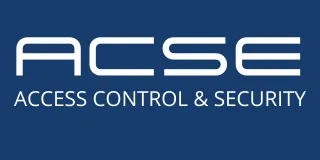
Navigating Insurance and Risk Management for Gate Automation Installers
Gate automation is a specialized industry that blends mechanical engineering, electrical components, and security integration, making it a field with significant risks. Whether it's property damage, injuries, or system malfunctions, installers are exposed to liabilities that can result in financial losses, legal claims, and reputational damage.
For gate automation professionals, having the right insurance coverage and a solid risk management strategy is not optional—it’s essential. This article will explore the types of insurance policies installers need, common risks in the industry, and proactive strategies to minimize liabilities.
Understanding Risk in Gate Automation Installations
The nature of gate automation projects introduces various risk factors that installers must consider to protect their business.
1. Liability for Property Damage
Automated gate installations involve heavy equipment, electrical wiring, and moving parts. Mistakes or malfunctions can cause:
Damage to vehicles if a gate closes unexpectedly.
Structural damage to walls, fences, or adjacent properties.
Malfunctions in integrated security systems, leading to unauthorized access.
Without the right coverage, repairing these damages can be financially devastating for an installer.
2. Risks of Personal Injury
A malfunctioning or improperly installed gate can pose serious safety hazards, including:
Entrapment injuries caused by faulty sensors or lack of entrapment protection.
Impact injuries from high-speed gate closures.
Electrical hazards during installation or maintenance work.
Lawsuits arising from injuries can result in settlements costing thousands of dollars, making insurance crucial.
3. Legal Risks from Non-Compliance
Gate automation installers must adhere to safety standards like UL 325 and ASTM F2200. If a system fails and is found non-compliant, the installer may face:
Fines and penalties from regulatory agencies.
Lawsuits from property owners or injured parties.
Loss of business reputation, affecting future contracts.
Having proper documentation and liability coverage can help mitigate these risks.
3 Must-Have Insurance Policies for Gate Installers
To operate safely and securely, gate automation professionals should invest in three essential types of insurance.
1. General Liability Insurance
What it covers:
Third-party injuries caused by gate malfunctions or installation errors.
Property damage resulting from installation activities.
Legal defense costs in case of lawsuits.
Why it’s essential:
Protects against unexpected accidents that occur on-site.
Covers legal fees, settlements, and medical costs.
2. Professional Liability Insurance (Errors & Omissions Insurance)
What it covers:
Design flaws or installation mistakes that result in financial loss.
Failure to comply with safety standards.
Negligence claims related to faulty gate automation systems.
Why it’s essential:
Clients may sue installers if a system fails due to a design or installation error.
Helps cover costs related to rebuilding or fixing faulty work.
3. Product Liability Insurance
What it covers:
Defects in components that cause property damage or injuries.
Failures in gate operators, sensors, or control systems that lead to safety risks.
Legal claims against manufacturers or installers due to defective parts.
Why it’s essential:
Even if the issue originates from the manufacturer, installers can still be held responsible for faulty product installation.
Ensures protection if a component fails post-installation and leads to damage or injury.
Additional Insurance Coverage to Consider
While the three policies above are essential, additional coverage can further protect installers from unexpected financial risks.
Commercial Auto Insurance
Covers vehicles used for transporting equipment and workers to job sites.
Protects against accidents involving company vehicles.
Workers’ Compensation Insurance
Covers medical expenses and lost wages for employees injured on the job.
Required by law in many regions to protect businesses from liability.
Cyber Liability Insurance
Protects against data breaches involving customer information.
Covers costs associated with hacked access control systems.
Best Practices for Risk Management in Gate Automation
Beyond insurance, proactive risk management strategies help installers minimize potential liabilities.
1. Follow Industry Safety Standards
Ensuring compliance with UL 325 and ASTM F2200 reduces risk by:
Requiring two entrapment protection devices for safety.
Mandating proper signage and warning labels.
Setting design requirements that prevent injuries and property damage.
2. Document Every Installation
Keeping detailed records of each project provides legal protection. Include:
Blueprints and system configurations used for the installation.
Safety test results proving compliance before project completion.
Signed agreements confirming client understanding of maintenance responsibilities.
3. Use Certified and Tested Equipment
Only use reliable, industry-approved components to prevent failures.
Select gate operators and sensors that meet UL 325 certification.
Avoid modifying safety features, as this could void warranties and increase liability.
4. Train Employees on Risk Prevention
A well-trained team reduces the chance of accidents. Ensure employees:
Follow proper installation protocols.
Understand electrical safety measures.
Are trained to identify potential safety hazards before completing a project.
5. Offer Maintenance and Service Contracts
Many gate failures happen due to poor maintenance by property owners. By offering service contracts, installers can:
Ensure gates remain compliant and functional over time.
Reduce liability by addressing issues before they become major failures.
Create an additional revenue stream for the business.
The Financial and Legal Benefits of Insurance for Installers
Having the right insurance and risk management plan doesn’t just protect against financial losses—it also strengthens a business.
1. Winning More Contracts
Many commercial and government projects require installers to have proper insurance coverage.
Insured businesses appear more credible and reliable to clients.
2. Avoiding Devastating Financial Losses
A single lawsuit or accident could bankrupt a small installation company.
Insurance covers medical costs, legal fees, and settlements, preventing financial ruin.
3. Peace of Mind for Installers and Clients
Clients feel more secure knowing their installer is covered in case of an issue.
Installers can work without fear of unexpected liability risks.
Final Thoughts: Protecting Your Business and Reputation
Gate automation installers face unique risks that can impact their financial security and business longevity. By investing in general liability, professional liability, and product liability insurance, along with effective risk management strategies, installers can ensure long-term success and protection.
💡 Are you financially protected as a gate installer? If not, now is the time to review your insurance policies and risk management strategy.
📢 Read the full article on https://acse.io/insights for expert insights on protecting your business!

